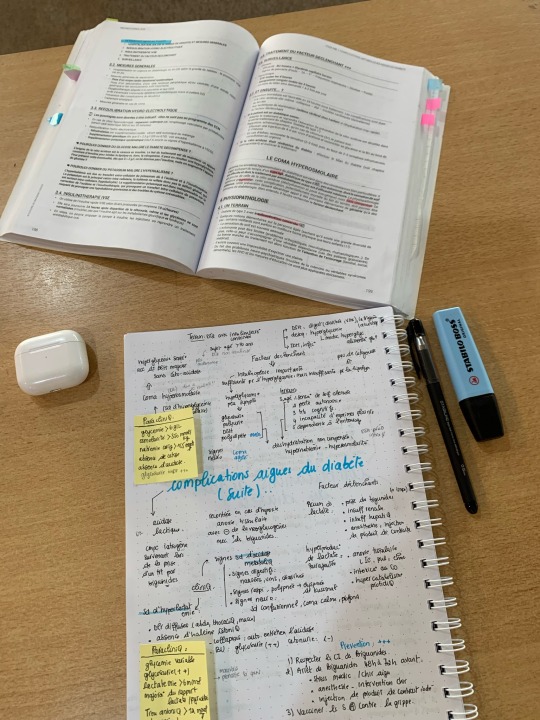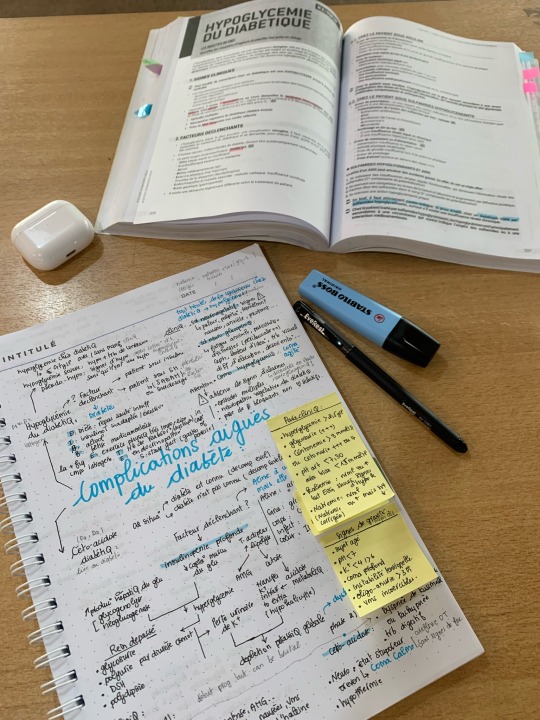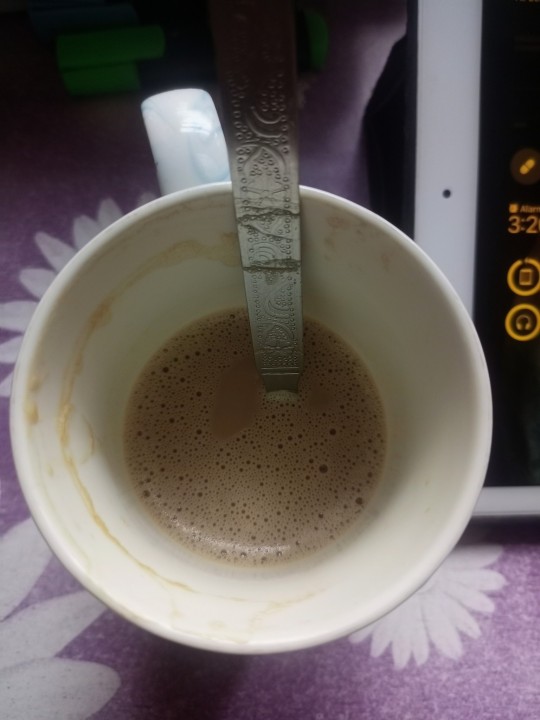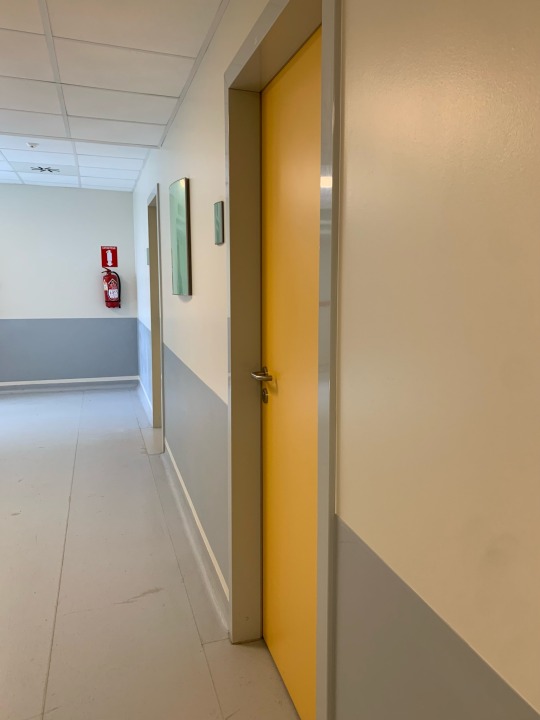#endocrinology
Text
PSA for trans men and trans mascs on T who are afraid of/concerned about or experiencing male pattern baldness: Talk to your endocrinologist who monitors your T about hair loss before you talk to anyone else, you have options!
When the hair in the top of my head started to thin, I talked to my regular GP. She told me it should be fine to use Rogaine topically. There were no other options, either because she was somehow not aware OR was under the impression that alternatives might interfere with HRT. If this was the case, she did not relay this info to me, and if she had, I would have made an early appointment with my endocrinologist, who specialises in HRT for trans people specifically, and asked her about my options.
But, since I only have appointments once a year with my endo now because my levels are generally super consistent, I decided to try Rogaine. I lasted about a month, because it basically meant I had to wear a lined hat at all times to make sure I wasn't getting any on my pillow/cats/child. You need to apply it two to three times a day and leave it on your scalp for a couple of hours for the best results, every day, forever, and if you stop using it, your hair goes back to whatever it was up to before that made you concerned in the first place. I quit after a month and resigned myself to eventually going bald.
I finally had a phone appointment with my endo last week (was supposed to be in person but she had an emergency and was working remotely for the day), and when I brought this up and that I had tried Rogaine but couldn't deal with all of the above + my scalp was not reacting well to the alcohol in the foam so I quit, she was like ????? what? why didn't your GP just prescribe you finasteride???
I am now on finasteride! It is a dirt cheap, tiny ass pill. I only need to take a quarter of a pill once a day (my endo also helpfully explained to me that pill cutters exist and are also dirt cheap, so perfectly cutting a pill into quarters takes about 5 seconds and I got it for a whopping $8). Just like Rogaine, I WILL need to take it every day, forever, but it's not going to get all over my pillow and make my cats sick or cause my kid to grow a beard or whatever. It isn't going to dry my scalp out, and it also the cost comparison is a joke. I take it every morning at the same time I take my adhd meds, so it's easy to remember.
I have seen so, so many trans men and mascs online lately worried about this, probably because I've seen so many conservatives and the kind of detrans people that conservatives like to parade around put a lot of emphasis about how T will make you UGLY and make all of your hair fall out. I do feel sorry for any detrans women who are dealing with wonky hairlines or male pattern baldness, but also it sure is convenient that none of them see fit to mention that if you are experiencing those things, you can literally just talk to your endocrinologist about what your options are and then take a quarter of a pill every day to fix it. Almost like making you aware of that might move you away from their end goal, which is getting you to detransition.
843 notes
·
View notes
Text




Done with last rotation of this year and last module✅
Glad to announce that after a long year of hard work , I can finally say that it was a success I passed and I’m officially a sixth year medical student ( time to change that bio lol )
None of it was easy , but you know what, you can accomplish whatever you want with hard work and commitment .
#studyblr#med life#medicine#studyspo#studygram#study motivation#medical studyblr#100 days of productivity#study inspo#study desk#study with me#university studyblr#study space#studystudystudy#study hard#medblr#medical school#clinical rotations#endocrinology#studyblr community#studywithme#study aesthetic#romanticism#studygloom#linastudyblrsblog
549 notes
·
View notes
Text
We have a serious problem
Michael Laidlaw, MD: I'm a board-certified endocrinologist, practicing in private practice for the last 16 years. I've been studying and publishing in this area for the last 5 years, including peer reviewed journals such as Journal of of Clinical Endocrinology and Metabolism, and others. I also have a patient who is a detransitioner.
I think it's important to note that studies are shown that desistance, or growing out of this condition, of children by adulthood is very high. It's some 50-98%.
I want to be sure before I give someone a very powerful hormone like Insulin that they in fact have diabetes.
What about cancer? Before we give any powerful agents such as chemotherapeutics or surgeries, we certainly want to have physical evidence of this problem, such as biopsies or imaging.
Now, the gender affirmative therapy treatment proposed by WPATH gives very powerful hormones and surgeries on what basis? Where can we find the gender identity to be certain that these children will not desist by adulthood? Can we use imaging of the brain or blood tests, genetic testing, are there other biomarkers to ensure that we are correct? There is no such thing.
Julia Mason, MD: The Endocrine Society put out guidelines in 2017, and they were very careful in the guidelines. One, to point out that the evidence was of low and very low quality. And they also said in the guidelines that they have no idea how you identify which kids are trans and require this treatment.
And then the American Academy of Pediatrics the next year just leapt into that void and said, oh, oh, we'll tell you how you know which kids. You ask them.
Prior to 2018 I had maybe one trans patient. But then there was another one. And another one. And another one.
It wasn't until later that I started asking questions like, wait, every single kid I send to the gender clinic gets put on puberty blockers or cross-sex hormones. Just, it was happening immediately.
Patrick Hunter, MD: This affirmative model of care has spread wildly in the last 8 years. Now we have objective, unbiased systematic reviews. These systematic reviews tell us the evidence for youth transition is poor quality, and with very low certainty for benefit.
In JAMA Pediatrics, there was a study reported from Northwestern University in Chicago. Patients ranged in age from 13 to 24 years. The authors concluded that mastectomy was beneficial and should not be delayed in youth. What lead them to that conclusion? The finding that 3 months after surgery, the 36 patients were happy with their flat chests. They lost 9% of their surgical cases to follow-up. Nine percent. In 3 months.
It is absurd, meaningless to draw any conclusions after 3 months.
This paper is indicative of the quality of research we have in this field, published in our most prestigious journals.
We have a serious problem.
#gender ideology#queer theory#medical transition#desistance#detrans#sex trait modification#genderwang#detransition#trans identity#cross sex hormones#wrong sex hormones#puberty blockers#poor research#medical malpractice#medical scandal#medical corruption#endocrinology#low quality#ideological capture#ideological corruption#religion is a mental illness
911 notes
·
View notes
Text


25/25 Days Of Productivity
Went to a Dental Hospital to get an appointment for root canal. I thought filling will do it but apparently it's not an option anymore </3. On a better note, it's the first time I completed a productivity challenge 🎉
🎧 : Vampire, Olivia Rodrigo
#the doc asked me to get x ray of the affected teeth and just at one glance she was like this needs an RCT 🥲#original#25 dop#stem academia#chaotic academia#heypeachblossom#studyblr#problematicprocrastinator#chazzastudiesalevels#heydilli#heygather#heychenleyah#heychemblr#meestudies#linksstudyblr#septemberstudies#endocrinology#biochemistry#medblr#coffee#study#productivity
92 notes
·
View notes
Text
got a referral to the endocrinologist (hormone doc/gender clinic)!
havent gotten back to me, but ill update y'all when it happens!!!
#lgbtq#queer#lgbtq community#lgbtqplus#lgbt pride#lgbtqiia+#queer community#transgender#trans#trans rights#trans ftm#trans masc#ftm trans#transmasculine#trans man#ftm hrt#trans hrt#hrt#transitioning#trans joy#endocrinology#gender clinics
22 notes
·
View notes
Text
“Dopamine downregulates serotonin: the more pleasure you seek, the more unhappy you get.”
—Dr. Robert Lustig (Pediatric Endocrinologist)
#psychology#neurology#endocrinology#science#medicine#doctors#medical students#quotes#motivation#motivational#self help#self improvement#self care#addiction
86 notes
·
View notes
Text
“The fractures wrought by reducing trans children to a reservoir of racial plasticity persist into the present day, as scholars’ work on the contemporary pediatric endocrine clinic shows. Claudia Castañeda argues that it is precisely the liberal edge of pediatric trans medicine that leverages children for ends other than their own, promising through puberty suppression therapy a form of transition at an early age that is aimed against those trans people who transition as adults. In this developmental framework, visible trans difference produced by transitioning after puberty is increasingly cast as an atavistic relic, so that adult transitioning “becomes a kind of lesser version of transgender—because less completely trans-gendered in a bodily sense” than the child who pauses puberty. While there is no inherent reason to confine puberty suppression therapy to this particular narrative, Sahar Sadjadi and Tey Meadow’s important ethnographic work in the contemporary clinic shows how the desire and extreme pressure to find a biological etiology for trans life by locating gender’s development “in the brain” has packaged profoundly normalizing rhetoric as scientific and progressive. An early and gender normative transition has become valuable insofar as it uses children’s exceptional plasticity to promise a future that erases trans visibility itself, a disturbing reconsolidation of the sex and gender binary that also evokes eugenic echoes of the “proper” racial phenotypes of human sex from early twentieth-century endocrinology. Rather than resisting a binary system, in this case plasticity continues to reinforce and even strengthen it.”
Jules Gill-Peterson, Histories of the Transgender Child
#quote#jules gill-peterson#histories of the transgender child#transphobia#trans children#trans medicine#plasticity#endocrinology#eugenics#pediatrics#*ayden
159 notes
·
View notes
Text
GUESS WHOSE THYROID IS SO MUCH BIGGER THAN THE SIZE IT SHOULD BE
GUESS WHOSE S NEW ENDO SAID THEIR OLD ENDO SHOULD N O T HAVE IGNORED IT THAT LONG
GUESS WHOSE S NEW ENDO SAID THEIR THYROID IS ONE OF THE BIGGEST THYROIDS THEYVE EVER SEEN
GUESS WHO NOW HAS TO POSSIBLY HAVE SURGERY TO REMOVE THEIR THYROID
GUESS WHOSE OLD ENDO CONTINUOUSLY IGNORED THEIR CONCERNS AND BLAMED IT ON THEIR WEIGHT OR ANXIETY DIAGNOSIS AND TOLD THEM TO TALK TO THEIR PSYCHIATRIST FOR YEARS
#I HATE HIM I HATE HIM#medical malpractice#medical neglect#bad doctors#good doctor#the new one is the good one#endocrinologist#endocrinology#hashimotos#hashimoto's thyroiditis#hypothyroidism#thyroid#medical problems#personal health#life update
73 notes
·
View notes
Text
The courage to try again.
This post is the restart of my PCOS journey. I felt like I fell off the rails a bit and just let myself have whatever whenever and skipped meals again.
So this is my starting point and I’m hoping this little blog spot will keep me honest and encourage me to push past the tricky parts and maybe even help someone who sees this later.
I’m not going to lie and say I didn’t spend 20mins looking for the pro Ana pages I used to scroll as a teenager hoping to find that perfect diet that will make things quick. But that’s not something I want to glamorise as a “quick fix” mentally ever again I feel like I’m in the right headspace to seriously change my habits and make progress.
So here’s the go
Medications
- Metformin (Daily)
- Ozempic (Weekly)
I’m still unsure of ozempic I know metformin will probably make me shit my pants at some point as I’ve tried it before and felt like my insides could explode but we are slowly increasing the dose so that doesn’t happen again but ozempic I’ve been on almost a year (as prescribed by my endo) and I haven’t seen much results although I’m not on full doses yet/haven’t made many changes to habits.
Starting measurements
Height: 170cm
Weight: 150kgs
If anyone ever sees this and has any meal/food suggestions or helpful suggestions in general I’m open to it.
10 notes
·
View notes
Text

Herz got to have her new comfy bed to lay on at my endocrinologist appointment today!
I think the appointment went really well. We discussed the vertigo issues that have been re-emerging along with the joint pain. She wants me to slow down on my taper, so I'm going to stay at this dose for a couple of months. I need to keep my patience hat on and not rush into anything. I'm so used to pushing through feeling bad that I am rushing taper, thus not giving my body the time it needs to adjust.
We're doing a LOT of bloodwork: full thyroid panel, adrenals, testosterone (no point in doing estrogen since my menstrual cycle is regular for the first time in my life), vitamins, minerals, electrolytes, and DHEA
I LOVE not producing hormones *sarcasm*
Having a doctor who actually listens to me and is willing to work with me is such a game changer.
#beans beans the magickal fruit#service dog#spoonie#health#endocrinology#endocrinehealth#thyroid#hormones#hormonal balance#hashimoto's thyroiditis#addison's disease#chronic illness#chronically ill#disabled#hrt#testosterone#adrenal fatigue#adrenal insufficiency
16 notes
·
View notes
Text
“Why is the thermostat so high? I’m taking all of you to get your thyroids checked, I swear.”
53 notes
·
View notes
Text

Islets Onstream
Insight into how the hormone-producing islet cells of the pancreas are organised during embryonic development – revealing potential new ways to treat diabetes
Read the published research paper here
Image from work by Wilma Tixi, Maricela Maldonado and Ya-Ting Chang, and colleagues
Department of Translational Research and Cellular Therapeutics, Arthur Riggs Diabetes and Metabolism Research Institute, Beckman Research Institute, City of Hope, Duarte, CA, USA
Image originally published with a Creative Commons Attribution 4.0 International (CC BY 4.0)
Published in eLife, August 2023
You can also follow BPoD on Instagram, Twitter and Facebook
#science#biomedicine#biology#endocrinology#islets#pancreas#embryonic development#developmental biology#sciart#immunofluorescence
9 notes
·
View notes
Text



endocrinology rotation check :
I don’t know about you guys ( med students) but I fall in love with every module I study , like how everything in human body is fascinating, studying every part of it might be challenging but definitely interesting and worth it
#studyblr#med life#medicine#study spot#studyspo#studygram#college studyblr#studyblrs get real#medschool#medblr#studywithme#studymotivation#study aesthetic#clinical rotations#medical studyblr#med student#medecine university#endocrinology#studygloom#light academia#study notes#100 days of productivity
90 notes
·
View notes
Text
One Year On Levothyroxine: Retrospective
Last year in October, I finally went to an endocrinologist and had my hypothyroidism officially diagnosed and was put on a small dose of levothyroxine. Two days later I cried because I could finally feel something other than empty and depressed. Now it's been almost one year since I started this life-changing medicine and I wanted to think back on all the ways it has impacted me in the long term.
During my Junior fall semester of college, I was barely able to move. I was not attending class, not doing my homework, and unable to concentrate. I was basically living with some of my friends in their dorm (which technically wasn't allowed) because I didn't think that I would be able to stay alive if I was on my own for so long (I did not tell them this). At this point, I had been diagnosed with MDD for 8 years. I was tired of good days meaning that I ate and bad days meaning that I'd stand on the side of the road.
Now I've been on medicine that works for a year and I feel like a completely different person. In fact, I feel like I never knew who I was before then. When I was younger, I assumed that I was going to die young and so had no ambitions. Now I can reasonably see myself living for another several years. This was so startling for me. I had all this time and I had no idea what I wanted to do with it. The past year has been a lot about self-discovery.
I started drawing comics last November as a way to cope with the several changes that were happening in my life: dropping out of college, moving into my first apartment alone, working two part-time jobs, and breaking up with my then-boyfriend. I know now that I love drawing comics, and that I don't want to stop anytime soon. I'm hoping that I can share my comics with more people to give them a sad chuckle when things are hard. I want to share what it is like to be depressed so that others can recognize it in themselves and in the ones close to them. This is the first aspiration that I have had for myself in a very long time.
I care more about my appearance. Granted, I'm still not the most hygienic. But I wear more than a T-shirt and khakis every day. I dress up for myself even when the only thing I'm doing that day is going to Walmart. I've learned that I love wearing bold and colorful eyeshadow.
I'm more likely to go out with friends. I'm more likely to make time for my friends. I'm more likely to care about my friends, what they like, their past, etc. That extends to my family as well. I have three different social circles which is way more than I've ever had in my entire life.
I don't shake as much at restaurants. Bright lights don't bother me as much. I eat when I'm hungry and have gained about fifteen pounds. I don't feel as lightheaded anymore. I poop every day (yeah, apparently you're supposed to? Didn't know that before). I have much more energy so I don't need to nap. I can count the number of days that I have spent in bed not moving on my fingers, whereas before I could go for weeks without leaving my room except for food.
I'm happier with myself and more forgiving. I'm moving forward with my life and am wondering still what I want out of it.
Thank you for being a part of it.
7 notes
·
View notes
Text
youtube
Dr. Robert Lustig (Pediatric Endocrinologist) - Serotonin vs Dopamine (Duration: 10 Min)
#neurology#psychology#endocrinology#psychiatry#medicine#depression#addiciton#motivation#motivational#self help#self care#self improvement#Youtube
6 notes
·
View notes
Text
Your Guide to the Best Diabetes Treatment in Columbus
Living with diabetes requires diligent management and access to effective treatment options. For residents of Columbus, Gerogia, finding the best diabetes treatment can be instrumental in maintaining optimal health and well-being. In this guide, we'll explore the various factors to consider when seeking diabetes treatment in Columbus, as well as highlight some of the top options available in the area.

Understanding Diabetes:
Before delving into treatment options, it's essential to understand diabetes and its implications. Diabetes is a chronic condition characterized by elevated blood sugar levels, which can lead to various health complications if left untreated. There are different types of diabetes, including type 1, type 2, and gestational diabetes, each requiring unique approaches to management.
Factors to Consider:
When evaluating diabetes treatment options in Columbus, several factors should be taken into account:
Expertise of Healthcare Providers: Look for healthcare providers with expertise in diabetes management, including endocrinologists, primary care physicians, and certified diabetes educators.
Comprehensive Care: Seek out treatment facilities that offer a comprehensive range of services, including medical consultations, nutritional counselling, exercise programs, and psychological support.
Access to Innovative Therapies: Consider treatment centres that provide access to innovative therapies and technologies, such as continuous glucose monitoring systems and insulin pumps.
Personalized Approach: Opt for providers who offer personalized treatment plans tailored to your individual needs, preferences, and lifestyle.
Community Support: Explore resources for community support, such as diabetes support groups and advocacy organizations, which can provide valuable peer support and educational opportunities.
Top Diabetes Treatment Options in Columbus:
Columbus Diabetes Center: With a team of experienced endocrinologists and diabetes educators, the Columbus Diabetes Center offers comprehensive care for individuals with diabetes. Services include medical consultations, nutritional counselling, and access to advanced treatment options.
OhioHealth Diabetes Services: OhioHealth provides a range of diabetes services across multiple locations in Columbus. Their team of specialists offers personalized treatment plans, diabetes education classes, and support groups to help individuals manage their condition effectively.
The Ohio State University Wexner Medical Center Diabetes and Metabolism Research Center: As a leading academic medical centre, The Ohio State University Wexner Medical Center offers cutting-edge diabetes research and innovative treatment options. Their multidisciplinary team of experts provides personalized care for individuals with diabetes.
Mount Carmel Diabetes & Endocrinology Center: Mount Carmel's Diabetes & Endocrinology Center offers comprehensive care for individuals with diabetes, including medical management, nutritional counselling, and access to clinical trials for innovative treatments.
Nationwide Children's Hospital Diabetes Clinic: For pediatric patients with diabetes, the Nationwide Children's Hospital Diabetes Clinic provides specialized care tailored to the unique needs of children and adolescents. Their team of pediatric endocrinologists and diabetes educators offers comprehensive treatment and support services.
Conclusion:
Finding the best diabetes treatment in Columbus requires careful consideration of various factors, including expertise, comprehensive care, access to innovative therapies, personalized approach, and community support. By evaluating these factors and exploring top treatment options in the area, individuals with diabetes can access the care they need to manage their condition and improve their quality of life effectively. Remember to consult with healthcare providers to determine the most suitable treatment plan for your individual needs and preferences. With the right support and resources, individuals with diabetes can lead healthy, fulfilling lives while effectively managing their condition.
#DiabetesTreatmentColumbus#ColumbusHealthcare#DiabetesManagement#HealthAndWellness#PersonalizedCare#InnovativeTherapies#CommunitySupport#HealthyLivingColumbus#Endocrinology#WellnessJourney
2 notes
·
View notes